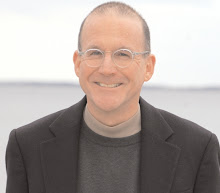Never were Louise and I more at home in New York than when we went to see Bobby Short at the Café Carlyle.
I learned that if you went for dinner, as few did, you would have a table in front, ten feet from the great man, the most perfect wearer of black tie in New York, the smiler of the brightest smile, the best-ever embodiment of the Cole Porter persona. We would order steak tartare, with its staring raw egg yolk, and a bottle of Champagne, and the headwaiter, recognizing (I flatter us to think) the very type of a good-looking and sophisticated and young Manhattan couple—younger than nearly everybody else in the joint—would refill our glasses and joke with us till at last the lights went down, and Short and his bassist and drummer would take their places in the dark.
With a thunderous hammering chord he would herald his entrance, the lights would blaze, his eyes would blaze, and Short would almost bellow his way into a grand old Porter song—say, “At Long Last, Love”—and we were there, we were in it, in him, in love, in New York, even back in the now mythic moment of the song’s making in the thirties, believing in forever. That past was long; why shouldn’t our future be equally so? I in my double-breasted slim-waisted navy-blue Paul Stuart suit, Louise in her silk Armani and Tiffany pearls, we looked the immortals that New York Magazine and our own friends too believed in. And when we spoke, and joked, and laughed, and danced, we limned—all unknowing—the patterns that our peers of course had not themselves designed but felt from within as though they had. At the end of the song, Short stood up suddenly from his bench, launched himself, really, with a huge smile, his eyes sweeping the room, demanding applause.
His eyes rested a moment, pleased, on us: He knew us, he recognized us, we were the type he wanted there. And then one bright Sunday brunch at the Trattoria Alfredo on Hudson Street we saw him, wearing a blazer and an ascot, sitting with the clothing designer Calvin Klein. Our companions were a young French girl and her fiancé, Anne and David, both undergraduates at Columbia, both spectacularly good-looking. Via a waiter Klein sent a note to David, asking if he was interested in modeling for him. It occurred to Louise and me for the first time, such innocents, that Bobby Short might be gay. We didn’t like the thought. We liked the romantic woman-loving man who occupied those songs. David, a lifelong New Yorker, rolled his eyes and said, “Tom, are you kidding me? Just look at the fucking ascot.”
David did end up doing some modeling, and appeared (fully clothed) in a few Calvin Klein magazine ads. Every single male involved was queer—David’s word—but nobody ever bothered him. Then he started medical school and was too busy to continue. He didn’t need the money anyway.
Louise and I continued to go see Bobby Short at the Café Carlyle, and his performances were always magical. Who cared about the man’s private life? We were all New Yorkers.
Monday, January 4, 2010
Subscribe to:
Posts (Atom)


